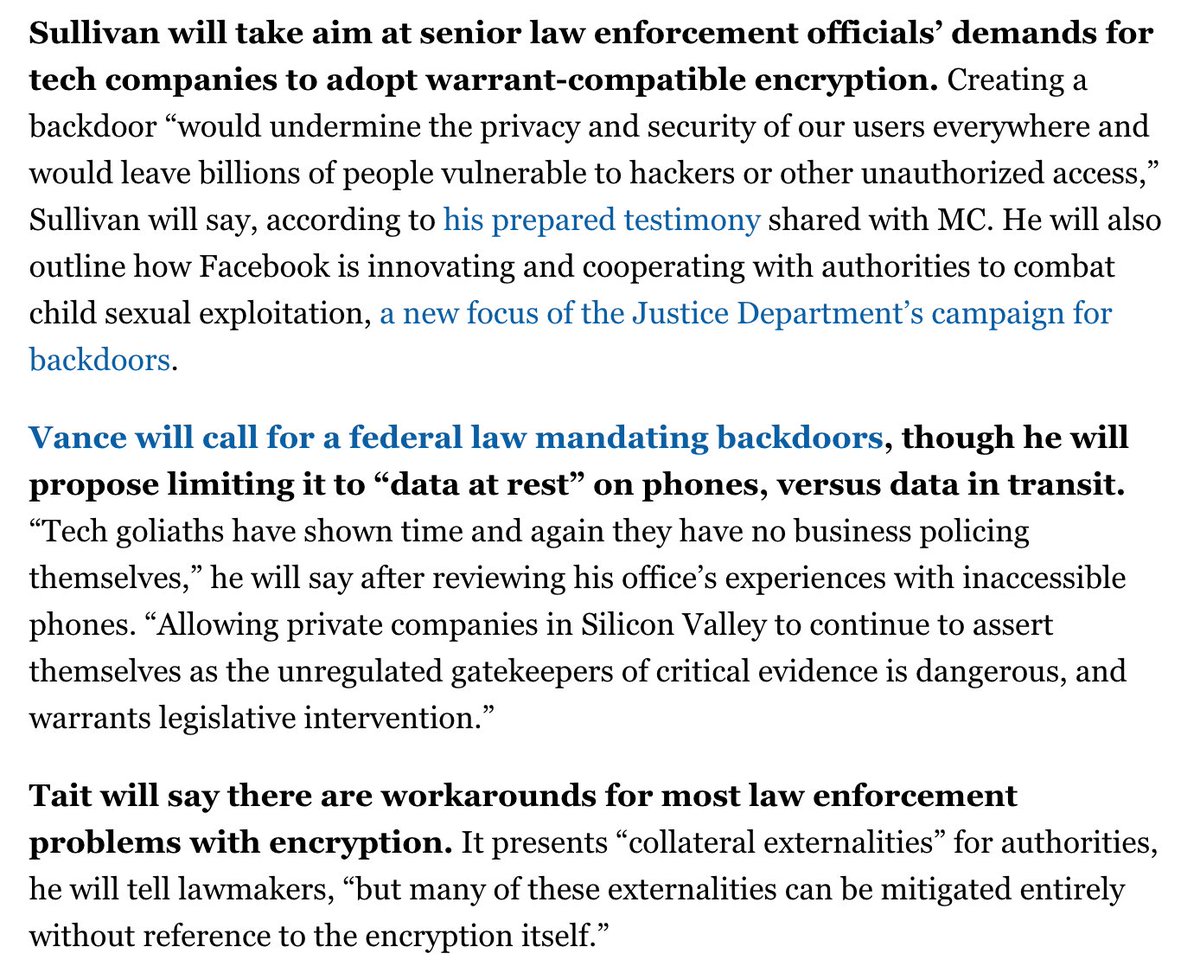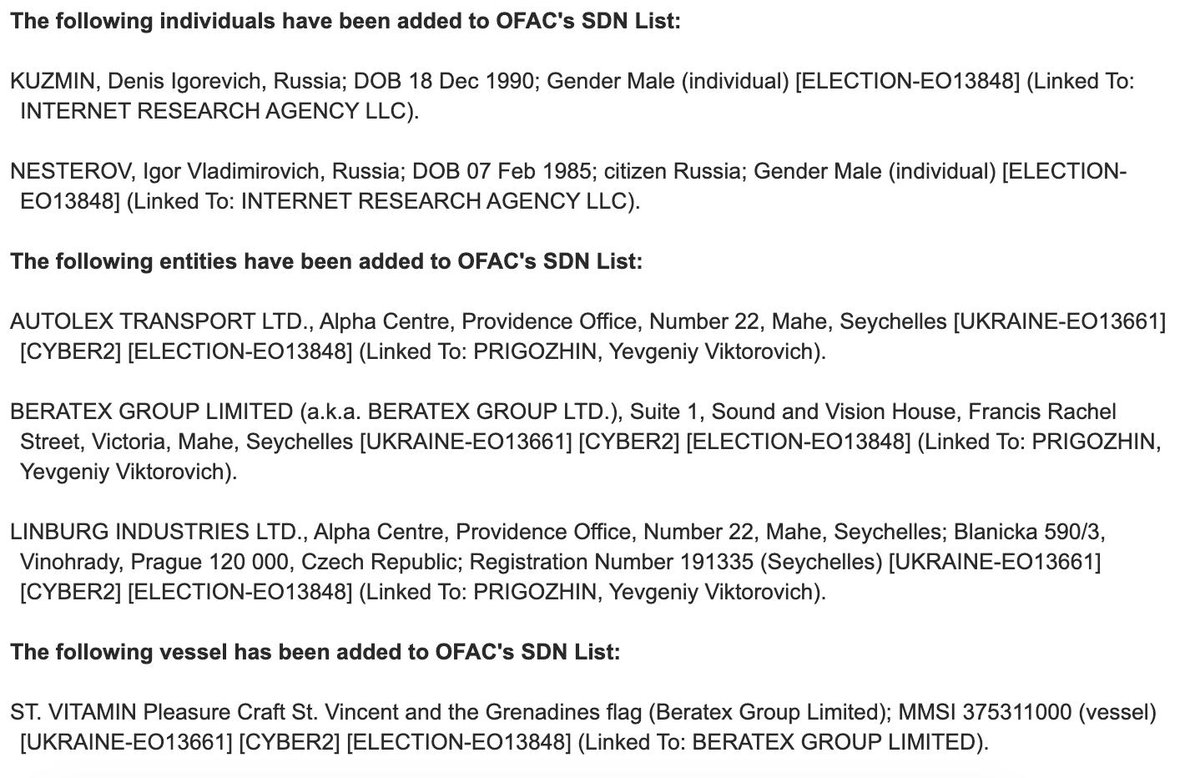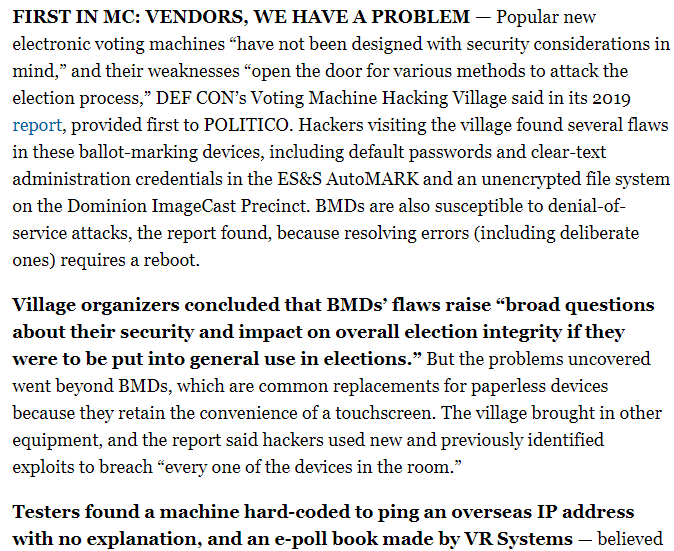We previewed witnesses' statements in @MorningCybersec, along with the encryption response that FB sent to US/UK/Aus: politico.com/newsletters/mo…

"No American should want a device that becomes a safe haven for criminality," Graham says.
If LE has evidence of a crime, "I want the government to be able to look and find out all relevant information."
Asks expert to figure out solution. “If y’all don’t, we will.”
“The single most important law enforcement challenge in the last ten years, in my personal opinion, is the expanded use of mobile devices by bad actors to plan, to execute, and to communicate about crimes.”
Graham: Are you willing to try to fix this problem?
Neuenschwander: Yes.
Graham: How do we do that?
Neuenschwander: Don't know off the top of my head.
Sullivan: “I think this is a very complicated, technical—”
Graham: “Well it ain’t complicated for me.”
Neuenschwander: It's not about convincing us. We technically can't do it right now.
"That’s because [Apple] engineered its phones to no longer have that capacity.”
Vance says LE agencies with $$$$ have improved lawful hacking capabilities, but even then it's only partially successful.
Vance: “Without moving toward legislation, we’re not going to solve this problem. And we need legislation.”
He reiterates that the focus should be on data at rest.
He says: Silicon Valley says encryption protects us from hackers and repressive regimes. But we’re not talking about any of those adversaries right now. “We’re talking about our government protecting our citizens” from crime.
Vance responds: Fine, but I primarily want access to the devices. Apps are another matter.
Vance: “I believe that technology companies can be asked to help answer that question in ways that a simple DA … cannot answer.”
Tait: Regulation that encourages companies to “compete” on warrant-compatible encryption.
Vance: “Absolutely.”
Vance is clearly every senator's favorite witness today.
Neuenschwander talks around it and ends with, “My heart goes out to the victims—”
Whitehouse: “I’m not so interested in your heart, actually.”
Neuenschwander won't answer.
Neuenschwander: We’ve never said that it’s impossible. “What we think is that the weakness that it would cause for everyone’s devices is a bad trade-off.” But “we welcome continued conversation and investigation" on this.
Sullivan dodges, talking about the work Facebook already does to assist LE.
cc: @RonWyden
"It is troubling to me to hear you [in Silicon Valley] say that giving the key to law enforcement would cause a weakness in the device that would be a bad trade-off. Catching criminals is never a bad trade-off."
She adds: You need to share data. “If you all can’t do that, we will do that. But there will be a cop on the beat.”
He keeps going back to the company's general three-part framework. But senators want more info.
Neuenschwander: I’m not aware of any software engineering steps that we’ve had to take.
Tillis: If we implemented an Australia-style law, would it be problematic?
Neuenschwander: Yes.
“When it comes to social media and privacy, we [in Congress] couldn’t pass gas.”
Sullivan: No.
Kennedy: So you just did it “out of the goodness of your heart”?
Sullivan: “It’s driven by our customers.”
Neuenschwander says the change was in response to the rising tide of data breaches and user concern about it.
Tait: Technically yes. There are very few of them though.
Vance: “Well, of course I wouldn’t.” But I haven’t heard specifics about how often it happened back when Apple helped us like this.
Neuenschwander: We could either roll back to the 2014 state, or try to hold a decryption key, which is something we’ve never done. “As a technologist, I am extremely fearful of the security properties of such a system.”






